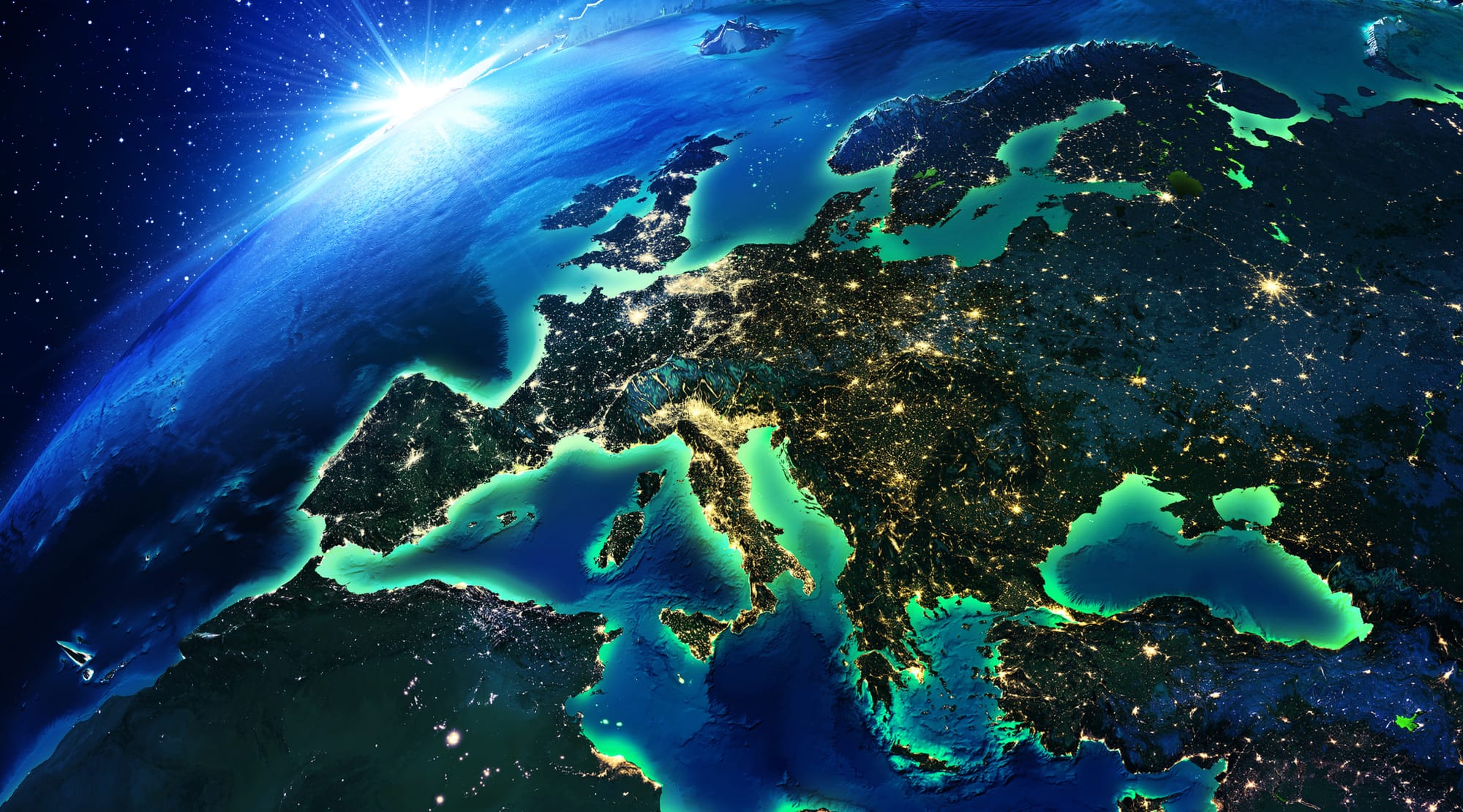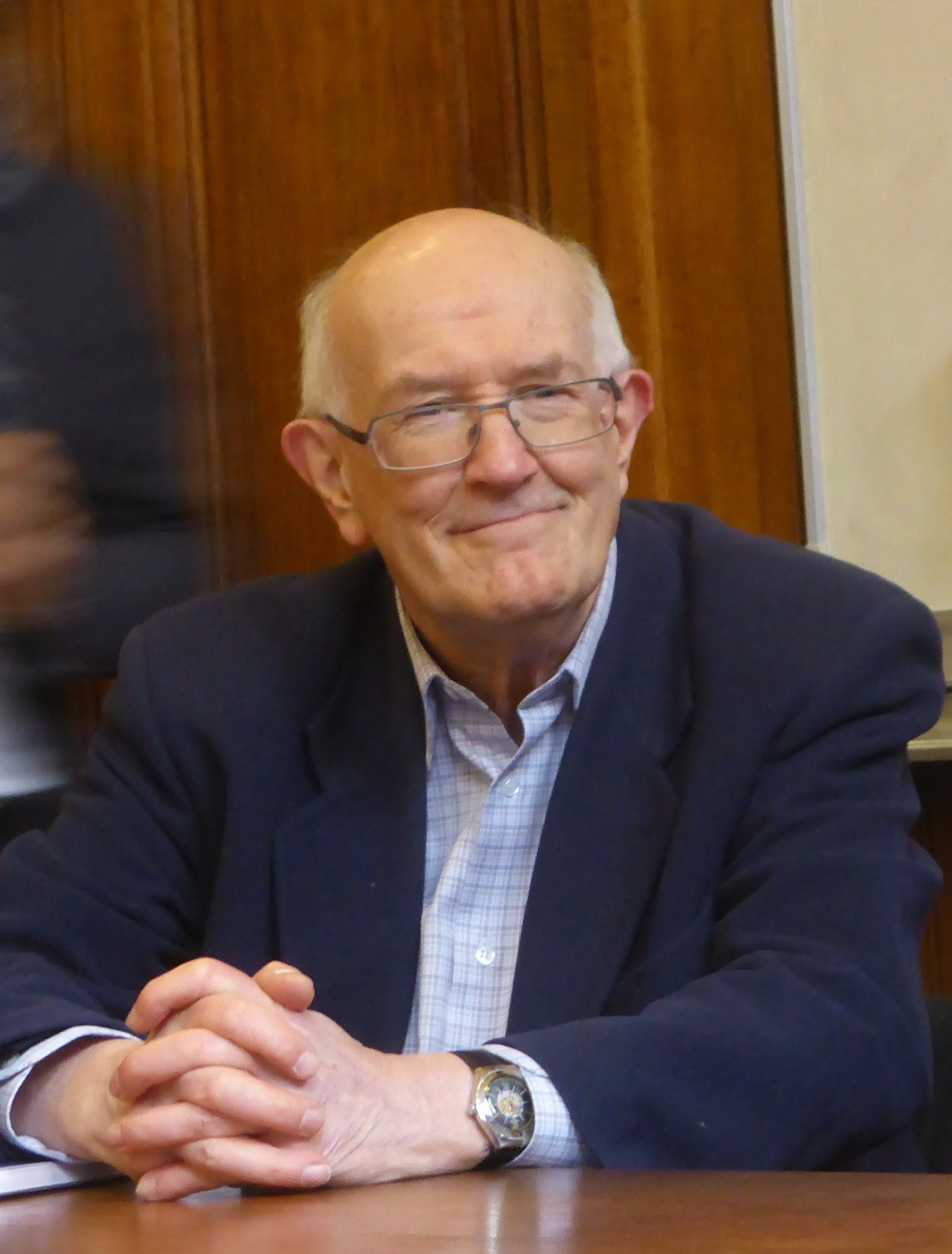
A sense of crisis; failing political leadership and institutions; a fractured society; an inability to plan long-term; a fascination with technology, with progress, with youth; a belief in individual liberty above all – and the threat of terrorism. How can we make sense of the times we live in?
For Dr Natalie Doyle, deputy director of the Monash European and EU Centre, the French political philosopher Marcel Gauchet has been an illuminating guide. Gauchet is a leading intellectual in France, but less well-known in the English-speaking world, where he's been eclipsed by his rival, Foucault. Dr Doyle first became acquainted with Gauchet’s work while researching her PhD on sovereignty in the late 1990s. When her PhD was written, she gave him a copy.
“He is a lovely man. He must be now, 72,” she says. “He's very generous. Every time I was in Paris, I would write to him beforehand, and he would find the time for me. Which is amazing, because he is extraordinarily busy. Not only is he a prolific writer, but he directs one of the leading intellectual journals in France, Le Debat. And until two years ago he also gave seminars and supervised research projects [at the Centre for Political Research at the Ecole des Hautes Etudes en Sciences Sociales, in Paris].
At the end of 2007, as the Global Financial Crisis was beginning to unfold, Gauchet gave Dr Doyle an article he had just written (Democracy, from one crisis to another). The long essay also served as an introduction to his four-volume history and theory of democracy in Europe, The Advent of Democracy.
“The whole article I found so amazing, so lucid about the paralysis of politics in the Western world and the incredible power of the economy,” she recalls. “I found his argument so illuminating that I thought, ‘Number one, I am going to have to translate this’ [which she did in 2014]. “And I thought, ‘I have got to write about this.’” The result is her newly published book: Marcel Gauchet’s Loss of Common Purpose: Imaginary Islam and the Crisis of European Democracy (Rowman & Littlefield).
Shortly after reading Gauchet’s essay, Dr Doyle, who is a senior French lecturer in the Monash School of Languages, helped establish the Monash European and EU Centre. “That was before the onset of the euro crisis,” she says. “In subsequent years Gauchet’s work helped me make sense of what was going on.”
Europe – and the rest of the Western world – is still recovering from the Global Financial Crisis, the most severe global economic blow since the Great Depression. Our uncertain times are often compared to the 1930s, which also saw a rise in xenophobia and political instability. Dr Doyle says another superficial similarity with the ’30s is “the hunger for some kind of providential person who is going to solve the crisis. Hence Trump, or Macron in France”.
But Gauchet argues (and Dr Doyle agrees) that these times are quite different from the ’30s, an era when strong ideologies – fascism, Marxist-Leninism – became popular. “Today there are no mass parties, no strong ideological programs, no masses of people who are willing to drown their individuality in a cause,” she says. “We have ultra-individualist people who might go and click on a petition online, but ask them to turn up to a meeting – including union meetings – and they are nowhere to be seen.”
Some commentators describe our historical moment as ‘de-politicised’, but Gauchet disagrees with that, too. “What Gauchet suggests is that the de-politicisation is only on the surface,” says Dr Doyle. For instance, the party system that arose after WWII may not be cohering, but representative politics, in some form, has survived. Neo-liberal ideologies have redefined – and diminished – the role of the state, but the state still exists. “When the state withdraws from the economy, it has decided to withdraw – that is a political action and it was endorsed by societies,” she says.
A hallmark of our times is “the complete re-thinking of the most basic structures of life – family, marriage, same-sex marriage and all that,” says Dr Doyle. “So there is no longer any clear political consensus around norms. There are no common norms. We accept that. We live in societies that want individuals to be free to follow a variety of life choices … It gives the impression therefore that there is no political cohesion. But Gauchet suggests that there is still in fact a cohesion – at the imaginary level.”
The idea of the ‘social imaginary’ is central to Gauchet’s work.
“I want to stress that the word imaginary is not synonymous with fiction,” Dr Doyle explains. “It's a framework of meaning, which we use to understand our purpose and our place in the world. For a very long time, religion was responsible for managing that shared meaning.” Gauchet argues that as societies have become more secular, politics has replaced religious meaning with societies still bound by a ‘social imaginary’ – common, implicit understanding of the ultimate purpose of life. “It's imaginary because it's not conscious, not rational, not a form of analysis,” Dr Doyle explains.

The concept of the imaginary was first developed by Gauchet’s mentor, the Greek-French philosopher Cornelius Castoriadis. Gauchet suggests that the neo-liberal ideology that has swept the West “is a manifestation of something much more profound, which is the new imaginary of omnipotence that we are all in. An imaginary of total human control over the world, the natural world through the development of knowledge and technology, but also the social world through a legal rationalisation of human relationships.”
Dr Doyle says that “in the utopia which is the knowledge society, we have got to keep contributing to building human knowledge and mastering the world, right down to controlling our bodies, even our appearance … we are no longer allowed to grow old.
“And there is this new duty, a new norm, that we are also expected to slave away like mad, to increase the knowledge base of our society … We constantly have to prove that we are innovating, that we are creating, that we are contributing something.”
This world view has influenced the economics of the right – but also the rhetoric of the left, with its emphasis on “rights, individual self-fulfillment, liberation and so on”, says Dr Doyle. “It's a shared imaginary, and in different ways we're all inspired by it. And that's why it is so hard to understand it, react to it, change it. We are all caught.”
Politically and economically, at the level of the state, the individual workplace and in the family, the pervasive imaginary is disruptive and alienating – particularly for the young, who are under so much pressure. The rapid rate of technological, environmental and social change, and the emphasis on profit makes it harder to plan long-term. “That is another aspect of Gauchet’s analysis – we're totally locked in the present, incapable of imagining a future other than in terms of the creative destruction of what existed before,” Dr Doyle says. This further contributes to a “loss of meaning, a loss of purpose”.
The rise of Islamic fundamentalism, in particular, can be seen as a reaction to the pervasive sense of uncertainty. In traditional societies such as Bangladesh or rural Indonesia, the arrival of Western culture through the internet has been “destabilising”, Dr Doyle says. On the one hand, radical Islam is part of the reactive identity politics triggered by the global spread of Western technology. On the other, it appeals by providing a sense of collective purpose to those who can either find no place in a changing world, or have been unable to make sense of it.
"We are caught up in the short-term, we don’t invest the time to think more deeply about certain things, and we also seem to think philosophy is pointless."
In that sense radical Islam is also a form of “anti-capitalism”, she says. At the same time, in Western societies young people are rediscovering Marx – but, Dr Doyle says, “Marx has very limited value in understanding the capitalism of today”. A new analysis is needed.
“Gauchet’s fundamental message is that we're in a new world, one in which social relationships are being radically transformed, but we're just at the beginning of this new world, which is also putting an end to the geopolitical domination of the West,” says Dr Doyle. Our sense of connection is more abstract, more tenuous than in the past. So is our sense of identity.
Although Gauchet is ultimately optimistic about democracy’s long-term prospects, he's pessimistic about this historical moment, she says. “We are caught up in the short-term, we don’t invest the time to think more deeply about certain things, and we also seem to think philosophy is pointless …
“It’s true that philosophy on its own can’t solve the problems of the world; one needs to start with an engagement with what is really happening, and that engagement is through history – discussing changes, what was in the past, what is in the present, what was lost, what was created, what it all means. Gauchet’s political philosophy has grown out of a deep reflection on European history. It has much to offer to our world in transition. ”





